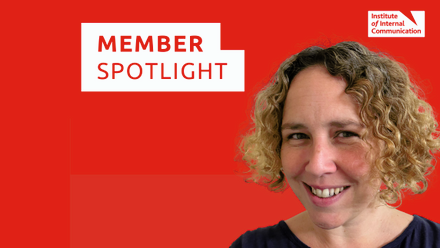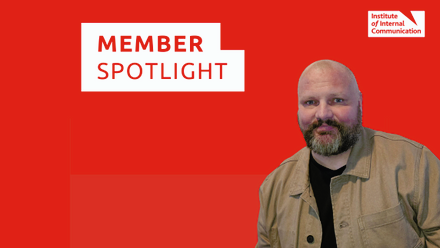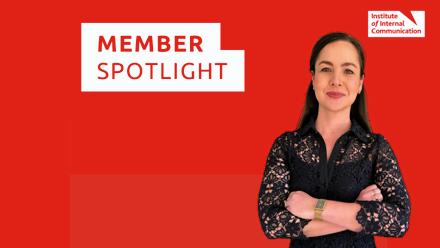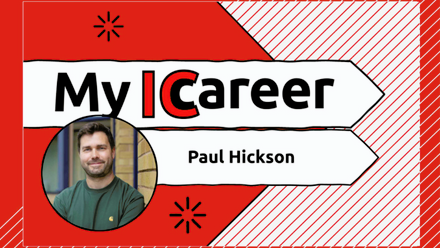Pretty sound logic, I thought at the time. But after some pretty dodgy work experience placements at various small scale newspapers, I decided I didn't have enough grit and ruthlessness to make it to the top.
What was I going to do now?
I left uni, and took a job in a small local blood cancer charity. I didn't realise at the time, but I was about to accidentally stumble upon a career in internal comms. Something I had never even heard of. But what got me there was a range of skills that I didn't realise ticked a lot of boxes.
Skill one: creativity.
After learning from the Marketing and Communications Manager about the Adobe Creative Suite, I figured out that in fact, I was quite creative. I could string together a fairly decent sentence, too. AND I liked talking to people, and building relationships. So, when the manager left, she VERY kindly put in a good word for me. And that started my journey.
Of course, this role was for both internal and external comms, and I found over my early career that internal was definitely my bag. I seemed to have a real aversion to the media!
Skill two: planning and strategy.
So after pretty much winging in through my first job, I moved into the NHS, where again my role was a mix of internal and external. But it wasn't long before my manager dedicated 100% of my time onto internal, and this was really where I learnt what it takes to be in IC. With over 1500 staff to motivate, inform and engage, it was a tricky but amazing experience. I learnt a second core skill, and actually another one that came quite naturally; planning. And believe me, once you've organised a mini festival for hundreds of people and their families, you really become a pro-planner. Strategy was less of a natural skill, and even now I'm learning about how to partner the business effectively to produce strategies that support the company purpose and priorities.
Skill three: working with empathy.
So far I was enjoying the skill mix that was needed in an IC role; planning, writing, designing. But what I learnt at my next role in Jaguar Land Rover was that my true passion was people. IC has a unique and trusted position in the business, and a great responsibility to be the voice of the average employee. Being part of leading a very difficult redundancy programme taught me that I'm not just a writer, a designer, a planner - I'm an advocate for people. I'm able to shape how people feel about coming to work, their perception of the workplace and therefore how much discretionary effort they give to the success of the company.
Skill four: measurement and analysis.
Working for a company like Jaguar Land Rover, at a time that wasn't all plain sailing, taught me an incredible amount about the role of internal comms. It helped me really commit to IC as a career that I could be successful in, whilst making a real difference to people along the way. So when I joined Nationwide, I used the opportunity to map my skills using the IoIC profession map and get serious about my own development. Measuring internal comms can be difficult, and as a profession we are notoriously bad at it (maybe because we prefer words to numbers), but the power it gives you is on another level. Once you talk the language of the business, you ability to make a difference increases tenfold.
In my almost ten years in the profession, I've learnt a lot, but I know I've only scratched the surface. The field of internal comms is always changing and evolving. No one year in my career has been the same as the next, but each one has been defined by something that has made a real difference to the companies I've worked in.
So if even part of this story resonates with you, then maybe a career in IC is right up your street!






